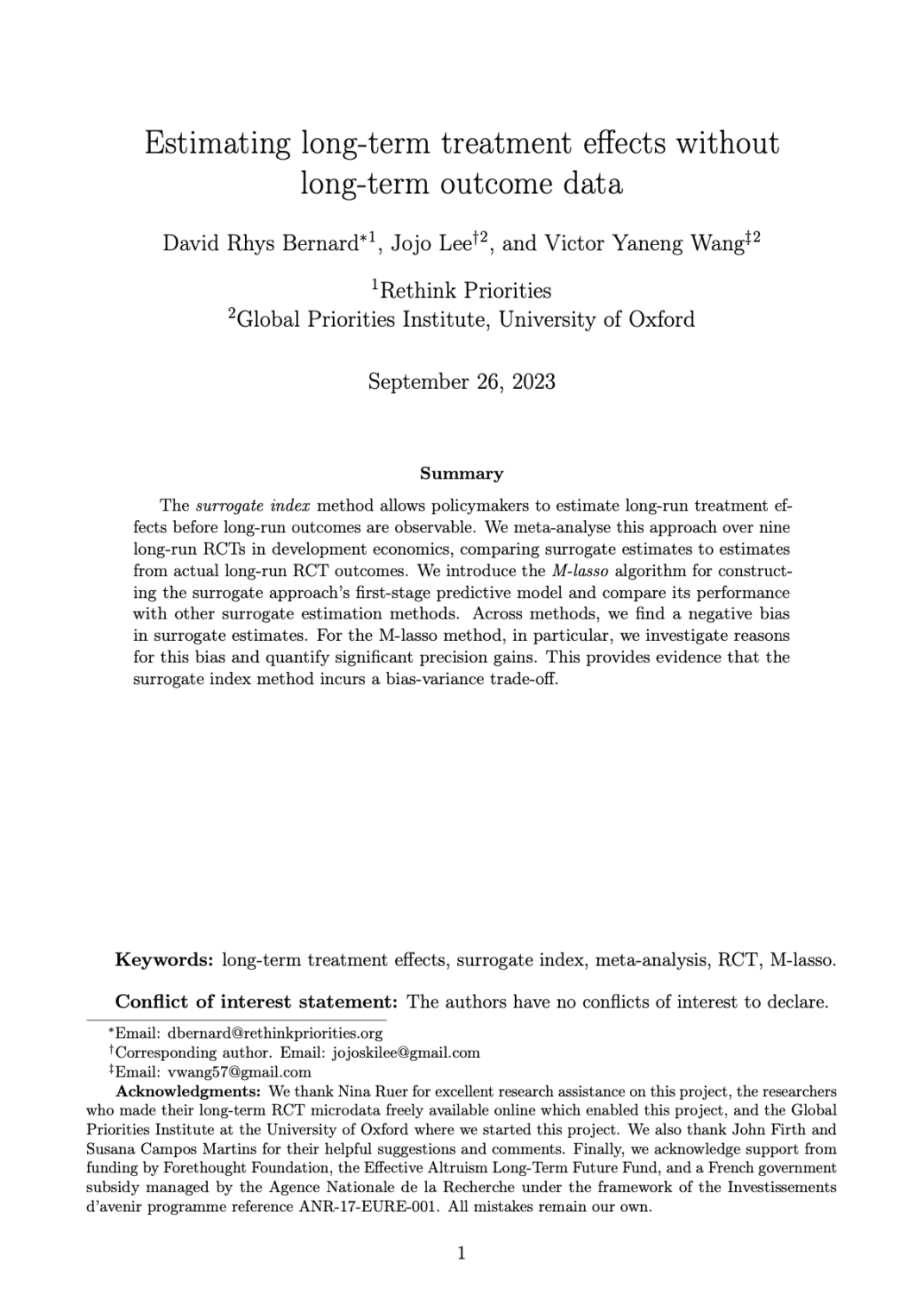Estimating long-term treatment effects without long-term outcome data
David Rhys Bernard (Rethink Priorities), Jojo Lee and Victor Yaneng Wang (Global Priorities Institute, University of Oxford)
GPI Working Paper No. 13-2023
The surrogate index method allows policymakers to estimate long-run treatment effects before long-run outcomes are observable. We meta-analyse this approach over nine long-run RCTs in development economics, comparing surrogate estimates to estimates from actual long-run RCT outcomes. We introduce the M-lasso algorithm for constructing the surrogate approach’s first-stage predictive model and compare its performance with other surrogate estimation methods. Across methods, we find a negative bias in surrogate estimates. For the M-lasso method, in particular, we investigate reasons for this bias and quantify significant precision gains. This provides evidence that the surrogate index method incurs a bias-variance trade-off.
Other working papers
The Shutdown Problem: An AI Engineering Puzzle for Decision Theorists – Elliott Thornley (Global Priorities Institute, University of Oxford)
I explain and motivate the shutdown problem: the problem of designing artificial agents that (1) shut down when a shutdown button is pressed, (2) don’t try to prevent or cause the pressing of the shutdown button, and (3) otherwise pursue goals competently. I prove three theorems that make the difficulty precise. These theorems suggest that agents satisfying some innocuous-seeming conditions will often try to prevent or cause the pressing of the shutdown button, even in cases where it’s costly to do so. I end by noting that…
Existential risk and growth – Leopold Aschenbrenner (Columbia University)
Human activity can create or mitigate risks of catastrophes, such as nuclear war, climate change, pandemics, or artificial intelligence run amok. These could even imperil the survival of human civilization. What is the relationship between economic growth and such existential risks? In a model of directed technical change, with moderate parameters, existential risk follows a Kuznets-style inverted U-shape. …
How much should governments pay to prevent catastrophes? Longtermism’s limited role – Carl Shulman (Advisor, Open Philanthropy) and Elliott Thornley (Global Priorities Institute, University of Oxford)
Longtermists have argued that humanity should significantly increase its efforts to prevent catastrophes like nuclear wars, pandemics, and AI disasters. But one prominent longtermist argument overshoots this conclusion: the argument also implies that humanity should reduce the risk of existential catastrophe even at extreme cost to the present generation. This overshoot means that democratic governments cannot use the longtermist argument to guide their catastrophe policy. …

